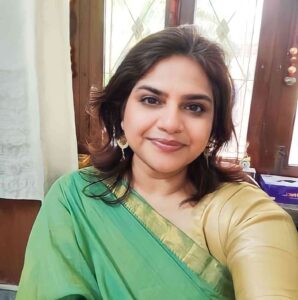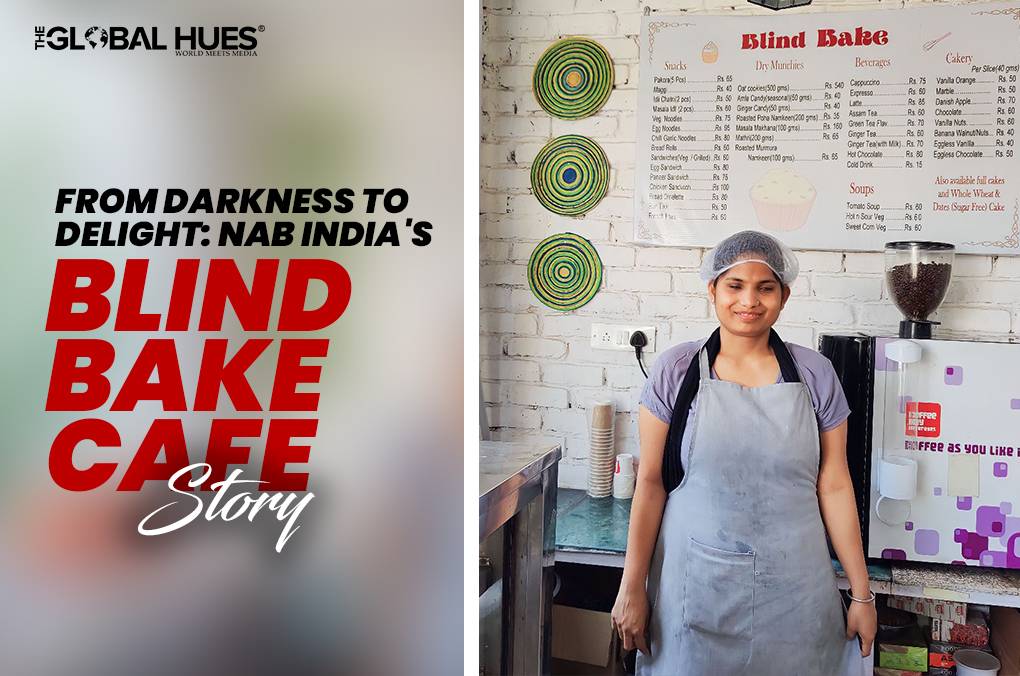In the year 2002, Shalini Khanna decided to write a research paper surrounding the lives of blind women. With a desire to shed light on the plight of blind women in India, she delved deep into the research. What she found out was disheartening as she saw blind women living in the shadows, forgotten and forsaken.
“Imagine a life where you eat your first meal when your family members return home from work at night. Seeing this harsh reality, I dedicated myself to incepting and building NAB India- Centre for Blind Women and Disability Studies which would give a variety of training courses for educated and uneducated visually impaired women,” says Shalini.

The first stage of the Centre’s mission was to teach blind women how to cook for themselves. Under the watchful eye of sighted mentors, these women learned to prepare meals like dal, roti, chawal and sabzi. It was a small step, but it was a giant leap towards self-sufficiency. The next step was to train these women to cook in larger batches, upholding hygiene standards. Once they learned that, Shalini decided to help these women become self-reliant and stand proudly on their feet as independent women. Thus, the foundation of the ‘Blind Bake’ cafe was laid.
About Blind Bake Cafe
Blind Bake is an open cafe located in the heart of South Delhi – Hauz Khas. From taking orders to serving delicious meals, the visually impaired women do it all. Running under the direct supervision of the NAB India Centre for Blind Women and Disability Studies, the cafe serves mouth-watering food.
“Every woman that comes to the Centre for training is taught cooking as it’s a life skill that everyone should learn,” mentions Shalini.
The cafe serves everything- Pizza, Soup, Chai, Coffee, Grilled Sandwich, Idli, Manchurian, Maggi, Snacks, Chowmein, and Bread Rolls. Added to this are delicious muffins and different varieties of cakes. Besides cooked food, packed items like biscuits, chips, mixtures and more are also available.
The Centre also has a cafeteria that is open for volunteers, resident trainees, donors and visitors.
How Do They Run The Cafe?
Every machine that these women use has special buttons on them. With the help of the Braille system, they get the idea of which button works for which. For instance, if something needs to be baked in the oven, then the baker would set the temperature with the help of a button. She would set the time with the help of Google on her phone. After the baking time is over, an alarm will sound to let the baker know that the dish is ready.
Other Courses Offered By The Centre
Under Shalini’s guidance, the Centre offers other courses as well which include Call Centre Executive Course, Discovering Hands- Breast Cancer Detection, Talking Hands, Handicrafts, and more. The duration of each course is different, some last for four months while courses like “Discovering Hands” extend up to nine months as women are taught comprehensively about the body’s anatomy.
“From ironing clothes to cooking, these women are trained to excel in everyday tasks. Depending on their interests and abilities, they are guided towards specific courses. We ensure that each woman finds her niche, whether it is in a call centre, medical examination room, spa, or handicraft designing,” explains Shalini while emphasising the different skill sets of the women trained at the Centre.
The Centre has recently sent two women to the Tata Memorial Centre in Varanasi and one woman to Fortis Hospital in Gurugram where they are working as Medical Tactile Examiners.
Blindness varies in degrees, with some women experiencing total blindness while others retain a minimal level of vision, ranging from 10% to 15% with gradual vision loss. Some may only see shadows and perhaps identify the colour yellow. “To accommodate those with limited vision, we have a perfect example in Tara. She worked as an intern at the Lemon Tree Hotel in Gurugram, responsible for setting tables and clearing them once clients have finished dining,” Shalini says with a smile on her face.
On A Mission To Bring A Change For Blind Women
Every year, the Centre enrols three to four batches of students, with each batch consisting of approximately 35 to 40 women with just one aim: To change the status of visually impaired women in India by providing them with proper training, education and guidance and gifting them a bright future.
Read More Inspiring Stories:
- Vrikshit Foundation: An NGO Encouraging Masses To Strive For A Healthier India
- Here’s Why Shubhi’s Unique Approach To Managing Traffic Is Doing Wonders
- Meet 68-Year-Old Doctor-Model Who Is An Inspiration To Many
- Echoes: A Cafe That Converses Without Any Language
- Meet The Man Behind Female Voice Of Railway Announcements




